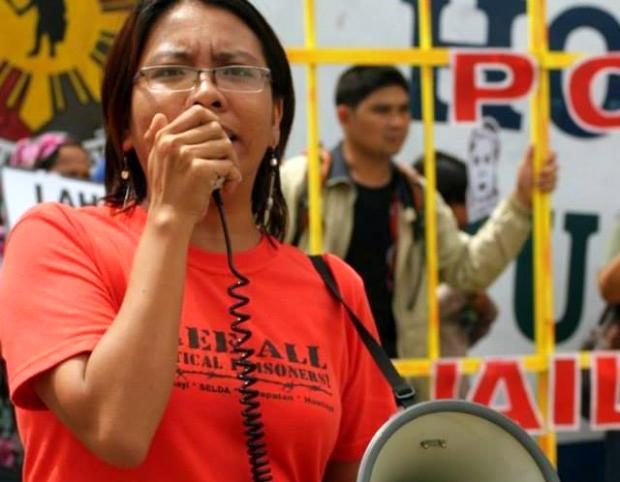PH move to delist cases of disappearances assailed

Credit to Author: besguerra| Date: Mon, 18 Feb 2019 23:27:13 +0000
The government’s move to have the United Nations delist more than 600 cases of enforced and involuntary disappearances in the Philippines, mostly attributed to government forces, is tantamount to an outright whitewashing of these crimes, a human rights group said on Monday.
Victims still missing
In a statement, Karapatan urged the UN Working Group on Enforced or Involuntary Disappearances (UNWGEID) to reject the Philippine government’s move, which began to be carried out last week by senior Philippine officials led by Undersecretary Severo Catura of the Presidential Human Rights Committee.
“The victims have been abducted and are still missing, and yet the government even wants to obliterate their families’ efforts to seek justice,” Karapatan secretary general Cristina Palabay said.
“This can only be an extension of the grave injustice that the kin of ‘desaparecidos’ have gone through and [fuels] impunity beneficial to the perpetrators,” she said.
During a meeting with the UN working group in Sarajevo, Bosnia-Herzegovina, on Thursday, Philippine officials gave assurance that the government had already put in place a strong legal framework and institutional mechanisms to deal with enforced disappearances in the country.
The Philippine mission to the United Nations in Geneva said the delegation sought to clarify and delist 625 cases from 1975 to 2012, citing domestic mechanisms already being implemented by the Department of Justice (DOJ).
It also cited the introduction of laws relating to the disappeared, such as the Anti-Enforced or Involuntary Disappearance Act of 2012 and the Human Rights Victims Recognition and Reparation Act of 2013.
The mission said Catura told the working group that the introduction of these laws came after close cooperation between the government and the families of the victims, private groups and civil society organizations.
It said the DOJ told the working group that 105 of the cases had already been taken up and claims for reparation had been granted.
Seeking redress
But Palabay said the cases were reported to the UN body through the tireless efforts of the victims’ families and rights groups, who wanted to bring the perpetrators to account before the international community.
“Since domestic mechanisms have failed in attaining justice, families of the disappeared have sought redress through international mechanisms, such as UNWGEID, to underscore the fact that their loved ones remain missing, that the victims and the crimes against them should be recognized and that the state remains accountable for these,” Palabay said.
Reports from human rights groups said at least 759 people disappeared during the martial law rule of dictator Ferdinand Marcos and 821 during the presidency of Corazon Aquino.
At least 39 cases of enforced disappearances were recorded during the presidential term of Fidel Ramos and 26 under the administration of Joseph Estrada, who is now mayor of Manila.
At least 206 people were reported to have disappeared during the presidency of Gloria Macapagal-Arroyo, now the Speaker of the House of Representatives, while 29 went missing under the administration of Benigno Aquino III.
Eight disappearances have been recorded since President Duterte came to office in 2016, Karapatan said.
Gov’t denial
“What remains a barrier is the government’s denial that such forms of human rights violations continue to this day,” Palabay said.
“We have faced one brick wall after [another] even in obtaining substantial responses [from] government agencies on the whereabouts of disappeared persons,” she added.
The family of the still-missing Jonas Burgos also slammed the government’s move as an insult and an attack to the families of desaparecidos.
They questioned the sufficiency of the domestic mechanisms, highlighting the appointment of retired Gen. Eduardo Año, a former chief of staff of the Armed Forces of the Philippines, to head the Department of the Interior and Local Government.
Año was head of the intelligence division of the AFP when Burgos was abducted in Quezon City on April 28, 2007.
“We ask the UNWGEID to visit the country now,” the family said in a statement. “We went to your office because all legal remedies inside the country have failed. We want you to intervene in the search for justice for these crimes against the Filipino people.”